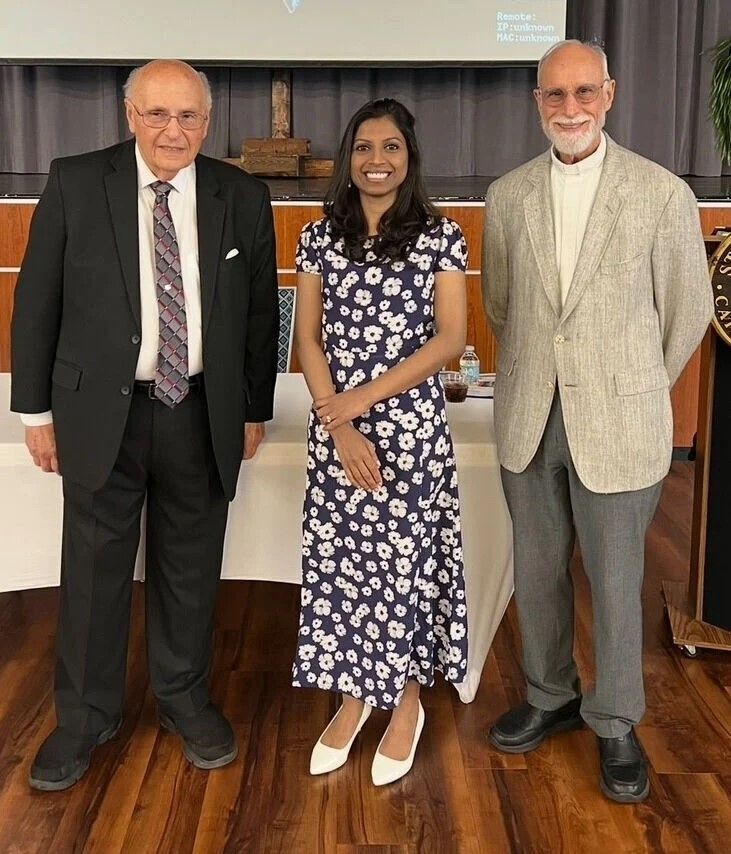
BOCA RATON | The Knights of Columbus sponsored an April 23, 2025, gathering, “Refreshments, Socializing & Truth: A Catholic Perspective on Infertility,” to discuss in vitro fertilization and faith-aligned fertility solutions in the Mercy Center at St. Joan of Arc Parish in Boca Raton.
Speakers at the evening event included Dr. Anthony Dardano, chief medical officer for 16 years at the Delray Medical Center, medical professor at Florida Atlantic University’s College of Medicine and a retired obstetrician/gynecologist; Father Alfred Cioffi of the Archdiocese of Miami with doctorates in moral theology and genetics who teaches biology, bioethics, philosophy and theology at St. Thomas University in Miami Gardens; and Sherin George, a certified physician associate who serves patients through the telehealth platform MyCatholicDoctor.com, with training in the Marquette and Creighton natural family planning methods and a NaProTechnology medical consultant.
Dardano said he is often asked: If the Catholic Church supports the creation of families, why does it oppose in vitro fertilization to help couples conceive? His answer, he said, is a simple statement: “Any technique or procedure which bypasses the normal marital act is not morally permissible.” Dardano added that, no matter how compelling the situation may seem, “we must not let our emotions cloud our intelligence, as the end does not justify the means. Ethical principles are like tree branches; bend them far enough and they break.”
At the foundation of Catholic bioethics is natural law, which is an expression of divine law and divine will, Father Cioffi said.
“Regarding human procreation, we observe that human fertilization is not only a natural process but also a vital process (for the next generation). In other words, we intuit that God intended human procreation to be done naturally, and we just don’t have the authority to change God’s plan,” he said.
Because of advances in medical technology, scientists have developed the ability to create human embryos in a laboratory, but is it wise considering the many moral and ethical challenges involved? The dangers of IVF, Father Cioffi said, include: increased risk of damage or death to the mother due to hyper-ovulation; failed attempted implantations (which are, in fact, procured abortions); failed freezing and thawing of live human embryos; surrogate motherhood (three-parent babies); denial of natural selection to the unborn child; and trafficking in live embryos.
“And finally, there’s the critical issue of what to do with the ‘spare’ frozen human embryos, for which there seems to be no ethical solution,” he said.
In her talk, George highlighted several healing, dignified alternatives to IVF, including NaProTechnology and the Creighton natural family planning method, both developed by Dr. Thomas Hilgers, which allow “trained providers to diagnose and treat underlying health issues in harmony with a woman’s natural cycle,” she said.
George also touched on evidence-based approaches, such as Fertility Education and Medical Management and NeoFertility, which work to restore human capabilities. “Rather than masking symptoms, these methods support the body’s design and honor the gift of life,” she said, adding, “It was my honor to serve on the panel and be a voice for this beautiful, often underrecognized field — one that truly helps people live life to the fullest.
For information on IVF and procreation from the church’s perspective is available from the U.S. Conference of Catholic Bishops at www.usccb.org/prolife/reproductive-technology and from the National Catholic Bioethics Center at www.ncbcenter.org.

